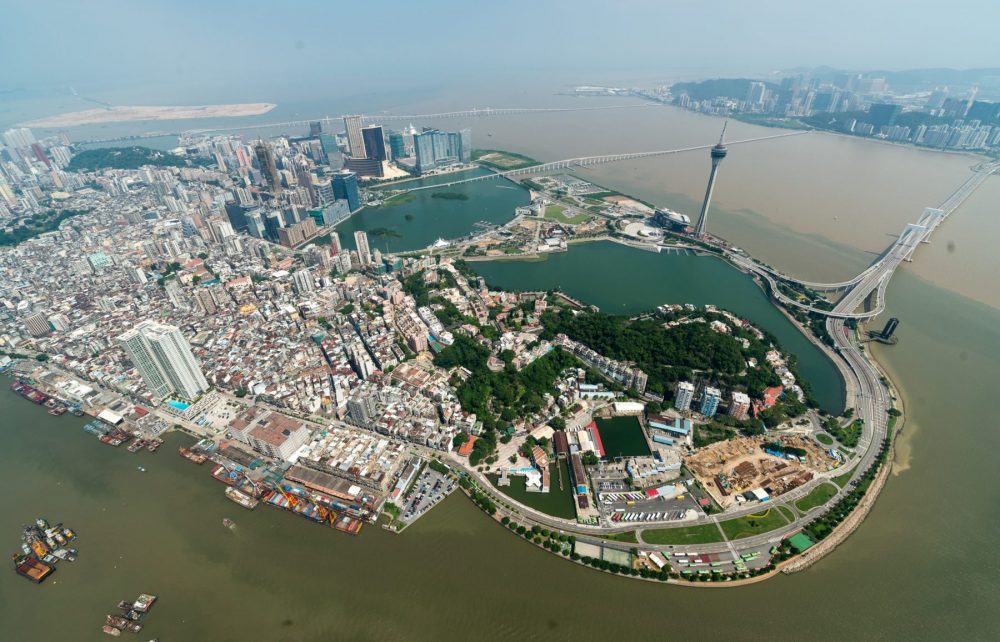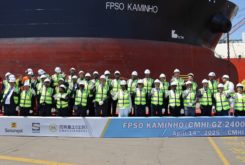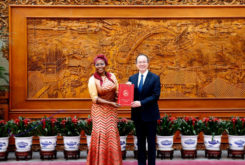The connection with the Portuguese-Speaking Countries has been a centrepiece for Macau Governments ever since the territory became a Special Administrative Region of China 20 years ago. The 2020 Lines of Government Action, the first presented under the new chief executive, Ho Iat Seng, essentially retain that central role and open new avenues for their development, like a Renminbi-denominated stock market and e-commerce platforms.
The document, presented on Monday, contains 43 references to Portuguese-speaking countries and five more specific references to the Portuguese language, including that digital trade between China and the Portuguese-speaking countries and cross-border e-commerce will be developed so that Macau is part of the national trade value chain.
“We will build an international hub for trade between China and Portuguese-speaking countries, which will contribute to Macau’s good performance as a platform for trade activities between the parties,” the Macau government said in a document presented on Monday at the Legislative Assembly.
The island of Hengqin, it adds, will contribute to solving the problem of lack of space and resources in Macau, allowing it to better perform its role as a platform between China and Portuguese-speaking countries.
Macau’s advantages as an autonomous customs area, a service platform for financial and commercial cooperation between China and the Portuguese-speaking countries and its foreign connection network will be used, in conjunction with Hengqin’s advantages in terms of space and resources, to strengthen the functions of openness to the outside, promoting the establishment of contacts between the Interior of China and the countries or regions covered by the Belt and Road, namely Portuguese-speaking and other Latin countries, contributing to the full openness of the country to the outside.
“Use will be made of the advantages of the possibility of vessel registrations in Macau, and the possibility of maritime cooperation, and fisheries cooperation with Portuguese-speaking countries, will be explored in a coordinated manner with the other cities of the Great Bay area or other regions of the Interior of China,” the document states.
The Macau government mentioned in its proposal the development of a modern financial industry and the need to build a service platform for trade cooperation between China and the Portuguese-speaking countries.
“We will be at the service of the Guangdong-Hong Kong-Macau Greater Bay area and the construction of the Belt and Road initiative for the promotion, innovation and development of technologies in the financial sector, we will accelerate the construction of financial, tangible and intangible infrastructure, and improve the legal regime for the financial sector, we will seek further extension of restrictions on the entry of banking and insurance institutions, among others, with a view to implementing a free movement of capital between Hengqin and Macau,” the guidelines said.
The document goes on to state that the government intends to build a cross-border settlement centre in Renminbi and study the possibility of creating a Renminbi-denominated stock market in order to boost development of a modern financial industry.
The cultural exchange between China and the Portuguese-speaking countries are also included, with the Macau government promoting on the island of Hengqin the development of a film industry and the cultural and creative industries, to explore and showcase the cultural elements of Macau inherent in its long history as a cultural meeting point between East and West.
“We will take full advantage of Macau’s role as a platform for sports exchange and cooperation between China and the Portuguese-speaking countries to develop the sports and leisure industry,” said the document containing the Lines of Government Action for 2020.
In May last year, cooperation agreements aimed at strengthening and accelerating China’s central government plan for the Guangdong-Hong Kong-Macau Greater Bay (GBA) were signed during the Guangdong-Macau Joint Cooperation Meeting held in Macau.
Former Macau Chief Executive Chui Sai On and Guangdong Province Governor Ma Xingrui led delegations at the meeting. Mr. Chui pointed out that under the Macau-Guangdong agreement, cooperation was strengthened with Hengqin in Zhuhai, Cuiheng in Zhongshan, Nansha in Guangdong and with Daguang Bay in Jiangmen.
The governor of Guangdong Province highlighted the fact that the GBA has allowed a more pragmatic development of bilateral cooperation, namely at the economic and commercial level with the construction of new relationship platforms.
The director of Macau’s Regional Development Policy Research Department Mi Jian said at the end of the meeting that Macau will lead a working group of the two territories to develop a 2.57-kilometre area of the Guangdong-Macau Industrial Cooperation Park, in Hengqin, which has yet to be used.
The meetings between Macau and Guangdong have been held since 2003, alternately in Guangzhou and Macau.




